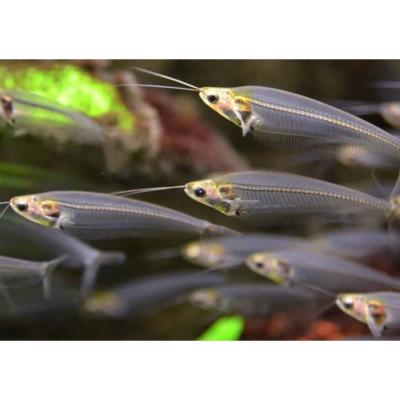
Thailand Glass Cat
₹150.00
869710371724/7 Support Center
A fish with real character which needs a large, well-filtered, softwater aquarium and frequent partial water changes to remain in good health.Best kept in groups with non-aggressive tankmates.
Uaru are gentle giants which congregate in small social groups within their natural blackwater habitat. The water is warm, and very soft and acidic, and these conditions must be recreated in the home aquarium (peat filtration highly recommended) in order for this species to do well. In the wild, these majestic fish prefer the safety of shady areas amongst vegetation and fallen trees, so this should be replicated in the home aquarium as best as possible. The tank must be at least 48" long and should incorporate dark substrate and decor. Lighting should be dim. The aquarium should be aquascaped with plenty of bogwood and robust plants such as Microsorum pteropus, or plastic/silk varieties. Uaru very much enjoy eating fine-leaved or soft-leaved plants; indeed their faces will almost appear to "light up" if you present them with some Cabomba caroliniana from time to time, a particular favourite! Uaru are peaceful fish and can be kept alongside other medium-large sized peaceable species. They should not be housed with aggressive or boisterous fish. The only time they are likely to become confrontational is if two of the fish pair off, at which time they should be separated from the rest of the group. Uaru are very susceptible to poor water conditions, so good filtration and frequent partial water changes are a must. Ideally they will only be added to mature aquaria. Not recommended for beginners. Young specimens show a "spotted" pattern and undergo a dramatic transformation into their adult form. May also be seen on sale as Triangle Cichlid.
It is important that Uaru receive a varied diet, incorporating a good amount of vegetable matter. They can sometimes be a little picky, but will generally feed on: flake, green flake, slow-sinking pellets/granular foods, lettuce, spinach, kale, cucumber, soft-leaved aquatic plants (such as Cabomba caroliniana), frozen foods such as mosquito larvae, Mysis shrimp, Krill, chopped prawns (salad shrimp) etc.
Your email address will not be published. Required fields are marked *
Please login to write review!
Looks like there are no reviews yet.